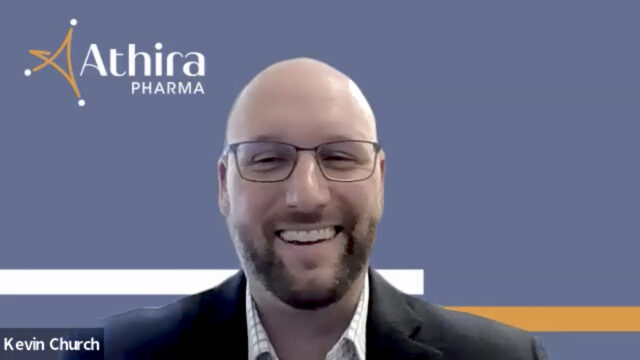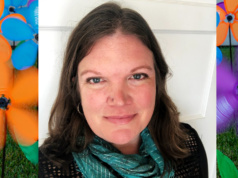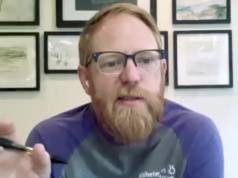Suzanne: And welcome everyone to Answers for Elders Radio Network. And we are talking to Kevin Church who is the Chief Science Officer of Athira Pharma that are making breakthroughs every day. And I know I’m not supposed to say that, sorry, but I love you guys in the cure for Alzheimer’s disease. And we’re very excited to present as much information as we can on possible treatments. Athira has a lot of podcasts on our website about different doctors that are on the forefront of obviously looking forward to a cure. And Kevin, it all starts with you in the lab, and you guys put together clinical trials. So tell us a little bit about, if you’re a son or daughter of someone that has early stages Alzheimer’s or dementia or Parkinson’s or anything like that, that’s brain disease. What happens in a trial?
Kevin Church: Yeah. So there’s a lot of different trials at different stages, anywhere from what we call phase one, which is the first time it’s tested in humans, to phase three, which are generally very large trials. And is the last step prior to applying for FDA approval. So there’s many different trials. There’s actually some statistics are interesting. There’s 143 drugs in Alzheimer’s development right now in clinical trials, 143 unique drugs. So there’s a lot of activity in this space. There’s a lot of trials and different types of trials, different lengths. If anyone is interested in trials, you know, talking to their doctor neurologist and determining what’s right for them. and going into https://clinicaltrials.gov. And so, you know, our trials are about six months. but trials in Alzheimer’s range from about six months, up to a year and a half, depending on the type of treatment and the stage of the disease. And so typically clinical trials, and I’m speaking in general terms, not any specific trial, would be periodic visits. There’d be going to a trial center — it’s usually a hospital, meeting with a doctor who administers the tests, typically cognitive tests or other assessments in Alzheimer’s, and then meeting maybe monthly, maybe every other month, traveling back to that facility over the course of the study, and then, of course, receiving the experimental treatment or placebo throughout the course of the study. That’s a typical, very high level, look at clinical trials.
Suzanne: And obviously as a care partner, our, our son or daughter, you’re involved in the trial as well with your loved one. Are you not?
Kevin Church: Absolutely. I think in Alzheimer’s the caregiver is essential to be involved and committed to the trial as well. And, and I’ll just say, as someone from the industry, we really admire and appreciate the commitment of the patients and the caregivers because it is a commitment. It’s a time commitment. I think I’m always encouraged or, I’ve always really appreciated, I’ve heard this in several news interviews, you know, not just in general about clinical trials is that well, it might not help me but it could help someone else. And I think that’s an amazing viewpoint and something that us in the drug development world really appreciate, because we could not bring new therapies, or we wouldn’t be able to attempt to bring new therapies, to patients without their help, without their, participation.
Suzanne: I really believe that there will be a cure someday, and I’ve seen just in my time in the industry how much more we know. Like you’re saying, that’s a testament to individuals that have stepped forward and said, you know what, I’m willing to at least make my life count if it doesn’t work for me. But the great thing is it is working for a lot of people right now and that’s the exciting part, in understanding a little bit more about what we’ve learned in the process. I am loving the results that’s going on in some of these trials across the United States that we hear about, and that’s gotta be exciting for you. Is it not, Kevin?
Kevin Church: Absolutely, there’s a lot of excitement in Alzheimer’s research, I think I mentioned, for the first time in a long time, I think with the recent approval of the anti amyloid, Aducanumab, that, really, was exciting for a lot of people because it showed you can get a drug approved in Alzheimer’s and there is a path forward and I think it’s, uh, you know, similar to the explosion and kind of oncology, therapeutic 20 over the last 20 years, we think, neuro, Alzheimer’s is the next frontier that, that could really make a lot of progress.
Suzanne: Fabulous. So how do people get involved in your trial? What’s the website again?
Kevin Church: I think it’s https://www.lift-adtrial.com/. And again, talk to your doctor or go to https://clinicaltrials.gov for any trial.
Suzanne: Perfect. And Kevin and I, we’re gonna talk a little bit about locations how you can get involved in trials right after this.











